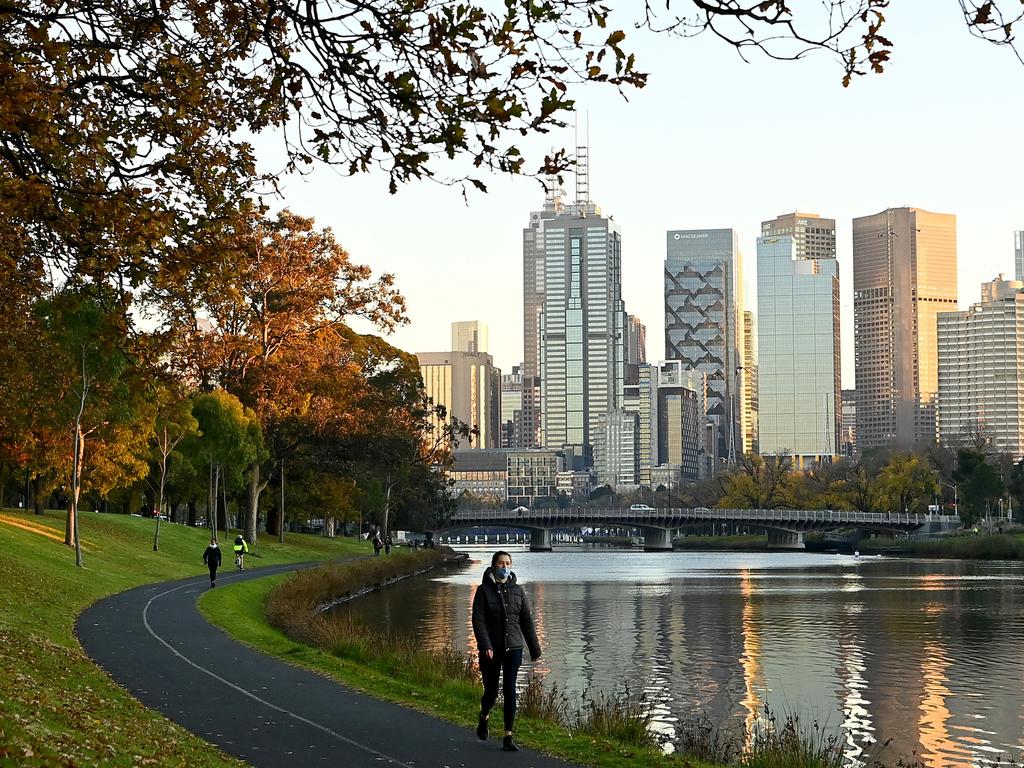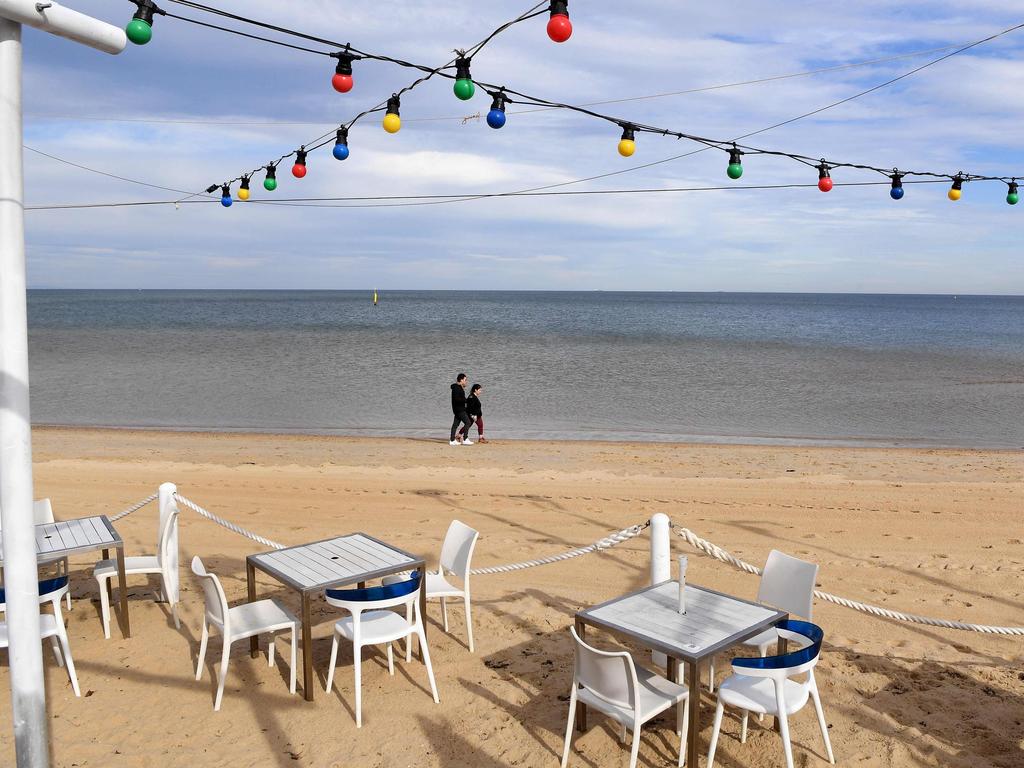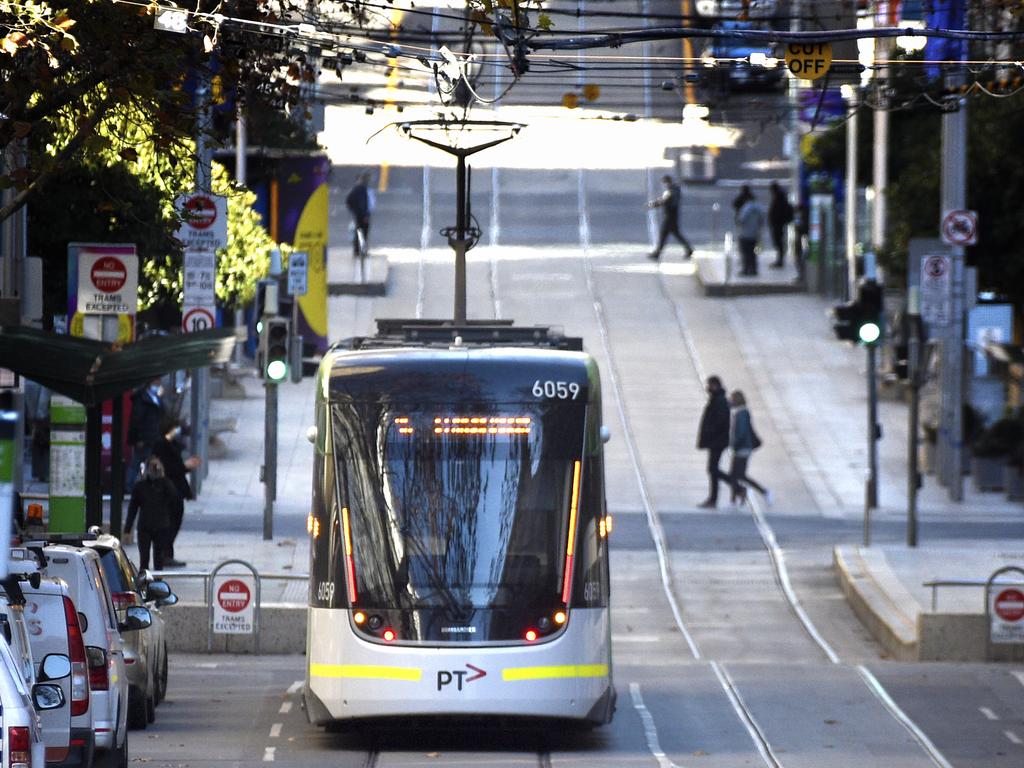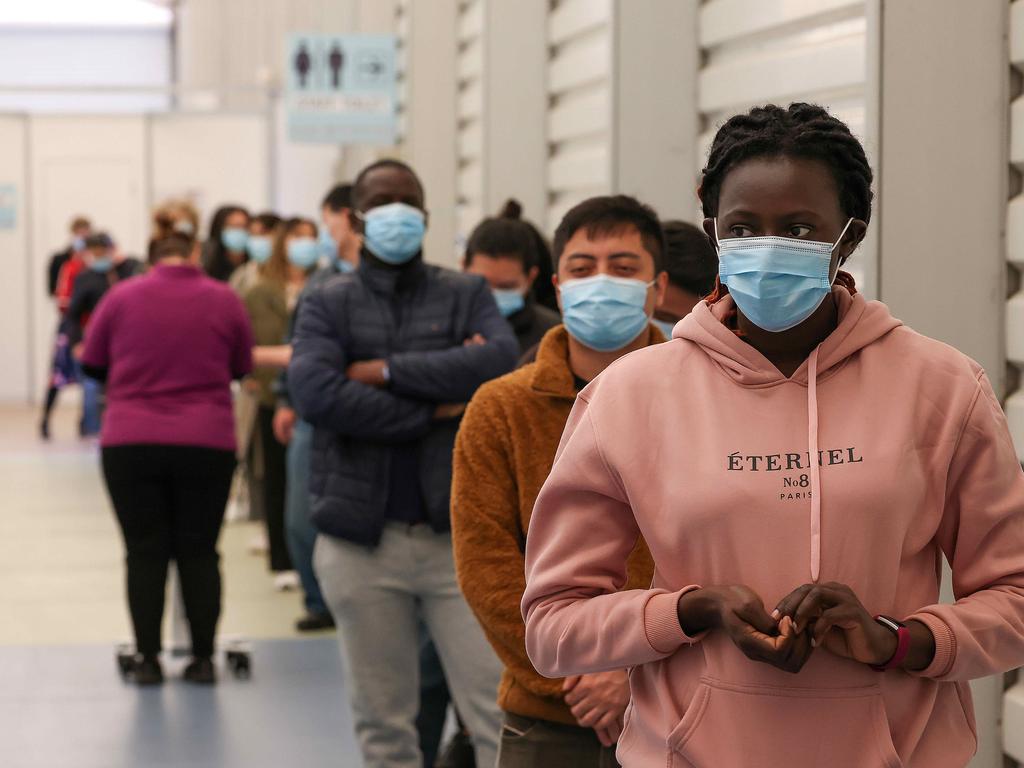Victorians are used to lockdowns now, but that doesn’t make it any easier
The fourth shutdown in two years has taken a toll on Victorians who have done it harder than any other state. These are their stories from lockdown.
Melbourne woman Sam feels “battered” right now as Victoria’s fourth lockdown is extended.
“It’s exhaustion,” she says. “I’m mentally drained. When you’re trying to look for the silver linings for the kids and the family it just gets a little bit harder.”
But her seven-year-old daughter is taking it harder than anybody.
“I’ve noticed it more with my seven-year-old. She was resilient and positive and couldn’t wait for remote learning (during previous lockdowns) … this time she’s just a hot mess,” Sam says.
“In the mornings she can have a meltdown. This morning it was drying her hair after the shower which is not like her. Then three minutes later she’s over it, happy, then by the afternoon she will probably have another one when she has to log off and is sad that she doesn’t get to see her friends.”
Sam tells her daughter that “sometimes life isn’t fair”, but that is among the primary school student’s “least favourite” sayings.

“I like to validate her feelings because they’re real,” Sam says. “I might not understand them but they’re real.”
Millions of Victorians are in the same boat, struggling through another lockdown after spending so many days in 2020 the same way. Working from home. Home schooling. One hour of exercise. Banned from travelling more than 5km from home (unless for essential work, caregiving or vaccinations).

Amanda, another Victorian in lockdown, was diagnosed by her GP last week with an “adjustment disorder” from all the changes.
“A couple of weeks ago at work, having just gone back to the office after 400 days working from home, I ended up having a panic attack in the office which I thought was out of nowhere and I ended up in hospital,” she says.
“I didn’t realise the impact that (all the changes) had had on me. Essentially (my GP) said it’s likely that I have an adjustment disorder now because of the changes, the nature of the changes, the frequency of the changes and the real lack of any surety we have in this situation.”
She says lockdown four has been “hardest because the general feeling … is like last year”.
“The uncertainty, the anger, the blaming, the finger-pointing feels like last year’s (lockdowns). I personally feel exactly the same as I did and that I find really scary because it did hit me really hard last year.”

Jack, who lives at Mickleham where the Victorian Government is proposing to build a fit-for-purpose quarantine facility, says he is trying his best but knows he needs help.
“Lockdown four is really hard,” he says. “I’m still carrying a lot of trauma from lockdown two. It just kept getting extended.
“It’s really hard not being able to see friends and go to church and connect with the community. I’m a very sociable person and it’s hard not to see people.”
He tunes into livestreams from church but it is not the same.
“During previous lockdowns we’ve been able to connect virtually but it doesn’t feel the same connecting through a laptop or watching on TV.
“I’ve already had mental health problems before lockdowns. When all my coping mechanisms like going to church and connecting with people were taken away, it took me to a really dark place. The last few days have been tough. Trying to keep positive but it’s hard.”

Dhayana, a gamer from New Zealand who moved to Victoria last year, hasn’t been able to return home to meet her newborn niece.
“It’s hard (having family in NZ),” she says. “When I first decided to move to Melbourne I didn’t anticipate it to be this hard to be away from my family. Things like that have made it really challenging. Just knowing that they’re so close but so far is hard to deal with at times.”
The thing she finds hardest about lockdown? The dread that it could go on indefinitely.
“(When the last lockdown ended) we could go back to work and see friends again but we’re back in lockdown with this uncertainty about how long it will continue, I can start to see that I’m feeling that anxiety and that dread, that disappointment as well. If it carries on for much longer, who knows if we’ll be able to spend Christmas with family.”
But she can see some positives.
“It’s amazing how resilient we are as human beings,” Dhayana says.
“We’re fighting through it every day. We’re coping, we’re supporting each other. Globally, we’re all in this together. No matter where you’re from or what language you speak, we understand what we’re going through. I want to say that’s special but it’s a bit sad that it has to come to this to bring us all together.”




